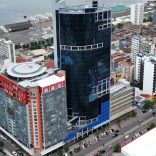Mozambique: Civil society questions using the Sovereign Fund to finance State Budget
Bank of Mozambique leaves interest rates unchanged

File photo: Lusa
The Monetary Policy Committee of the Bank of Mozambique (CPMO), meeting in the southern city of Xai-Xai on Wednesday, decided to leave its key interest rates unchanged.
Thus the Interbank Money Market Rate (MIMO), used by the central bank for its interventions on the interbank money market to regulate liquidity, remains at 13.25 per cent, after it was raised by 300 percentage points in late January.
Likewise, the Standing Lending Facility (the interest rate paid by the commercial banks to the central bank for money borrowed on the Interbank Money Market) remains 16.25 per cent, and the Standing Deposit Facility (the rate paid by the central bank to the commercial banks on money they deposit with it) is also unchanged, at 10.25 per cent.
The CPMO also left the compulsory reserve coefficient, the amount of money that the commercial banks must deposit with the Bank of Mozambique, unchanged, at 11.5 per cent for local currency and 34.5 per cent for foreign currency.
A statement from the CPMO said it based the decision not to alter interest rates on “the worsening of risks and uncertainties” in the Mozambican economy, “despite the revision downwards of the forecasts for inflation in the short and medium term, mainly reflecting the recent appreciation of the metical”.
Among the risks and uncertainties mentioned by the CPMO is the worsening military instability in the northern province of Cabo Delgado, resulting in fiscal pressure, and suspension of the Mozambique LNG project, the largest foreign investment in the country, involving the construction of natural gas liquefaction facilities by a consortium headed by the French oil and gas company, Total.
The exchange rate of the Mozambican currency, the metical, had become increasingly volatile, which the CPMO blamed on “the high uncertainties and asymmetries in the process of forming the expectations of the operators on the exchange market”.
Problems external to Mozambique included “greater fluctuation in the prices of financial assets and of commodities, and the appearance of new strains of the coronavirus”.
Despite the worsening risks, the forecast for inflation had been revised downwards. Annual inflation slowed down from 5.76 per cent in March to 5.19 per cent in April. This, the CPMO believed, reflected the recent appreciation of the metical against the main currencies traded in Mozambique, and the dissipation of the impact of the storms that hit the country earlier in the year. Underlying inflation (which excludes fruit and vegetables, and goods with administered prices) slowed down, as expected. Low inflation is expected to continue in the short and medium term.
Economic recovery in 2021 will be slower than expected, predicts the CPMO, because of the weak domestic demand and the effects of the suspension of the Total LNG project.
Domestic public debt remains high, and since the end of March increased by 310 million meticais (about 5.2 million dollars) to reach a total of 205.5 billion meticais.
The country’s international reserves “remain at comfortable levels”, the CPMO added. Gross international reserves currently stand at 3.987 billion US dollars, enough to cover six months’ imports of goods and services.












Leave a Reply
Be the First to Comment!
You must be logged in to post a comment.
You must be logged in to post a comment.